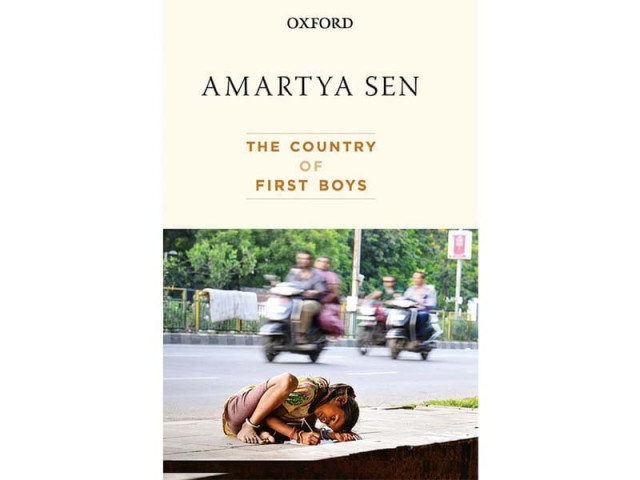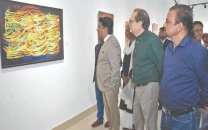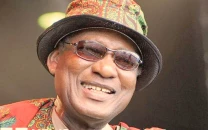Review: Importance of equitable development
Amartya Sen weaves together historical fact and myth with poetry and literature to present alternative ideas

Amartya Sen’s essays contextualise India as an integral part of world civilisation
With them Sen is able to weave together historical fact and myth with poetry and literature to present alternative ideas to popular perceptions.
Gopalkrishna Gandhi, former Indian diplomat and governor of West Bengal, who is also the grandson of Mahatma Gandhi, writes in the introduction for the book, “I have read the pieces compiled in this volume as essays are meant to be read – without an appetite for knowledge, thirst for data or hunger for measurable quantities of explanation. I have read them for and with pleasure that comes, almost incidentally, with insights. Even delicious fare might bring with it nourishment.” The essays are certainly nourishing – they share insights without weighing the reader down and the insights are such that come from Sen’s own reasoning, dedicated learning and progressive education.
Incidentally, the book is dedicated to schoolteachers and health workers, and Sen has focused much on the need for reform in both education and the health sector in India. In Sunlight and Other Fears: The Importance of School Education, Sen identifies some of the fears that beset the waking children of India, in fact children across the region. He writes, “There is much to fear in a day that begins without a meal, without a friendly school to go along with other children, without relief from illnesses and maladies that are constantly present in a precarious childhood, and, not least, without anything much to look forward to in the future.”
Drawing on a wealth of research and experience he lays to rest the myth that parents are disinterested in educating their children, particularly their daughters. What is touted as parental reluctance is in fact absence of accessible schools with necessities such as lavatories, reliable and sufficient teaching staff.
In another article, What Difference Can Tagore Make?, he introduces the reader to Bengal’s equivalent of Shakespeare and Goethe - Rabindranath Tagore, whose contributions to literature were coupled with “the importance of open-minded reasoning and the celebration of human freedom”.
He goes on to discuss Tagore’s ideas on education which he believed to be the transformative cog in the development process. Tagore had devoted much of his life to establishing Santiniketan, the progressive co-educational school where Sen was educated.
Gopalkrishna also writes, “To have had a chance of hearing and reading one who claims an earnest seeking of facts, not infallible certitudes, is to have heard a voice over noise.” Sen has, in these essays, examined social justice and welfare, looking at the deprivation, disparity, hunger, illiteracy and alienation within Indian society while at no point ignoring globalisation and the change occurring throughout the world. The essays are, however, not in the voice of an expert handing down a diagnosis but in the voice of someone who has experienced this world and has through history, culture, literature and politics learnt of or imagined another.
The education of an economist
Within the context of the changing world, the essays also examine India’s path into the future for it is clearly a matter of import to Sen that India not lose either historical context or cultural plurality. A progressive schooling also includes the understanding that India is a part of a world civilisation and Sen alludes to India’s contributions to the body of modern knowledge by discussing the many astronomically reasoned calendars to the foundations of parts of modern mathematics.
Not all the essays are ‘comfortable’ reads though, as in the title story, The Country of First Boys, Sen’s tone is disappointed and at times biting where he examines the inequities of the Indian education system and highlights the lack of educational opportunities as “unfreedom”. He draws on the classical Sanskrit concepts of ‘niti’ and ‘nyaya’ that are organisational correctness and realised justice, respectively, and argues that policy reform is essential to meet the standards of both.
While clearly looking at India, The essays are equally appropriate for any part of the Indian subcontinent and possibly much of the underdeveloped world as they champion the idea of plurality as an essential component of being part of the modern world.
Title: The Country of First Boys
Author: Amartya Sen
Publisher: Oxford University Press Pakistan
ISBN: 9780199403646
The writer is a development consultant, freelance journalist and School of International Law director. She is interested in art, culture and music
Published in The Express Tribune, July 10th, 2016.
Like Life & Style on Facebook, follow @ETLifeandStyle on Twitter for the latest in fashion, gossip and entertainment.



















COMMENTS
Comments are moderated and generally will be posted if they are on-topic and not abusive.
For more information, please see our Comments FAQ